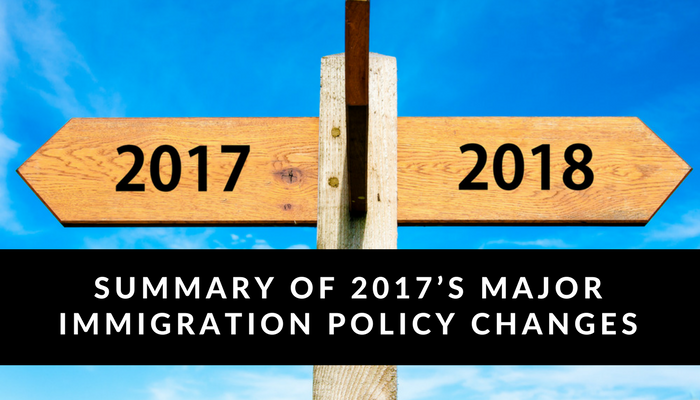 The current administration has set a goal of slowing down the legal immigration process to achieve a reduction in immigration and arguably protect US jobs.
The current administration has set a goal of slowing down the legal immigration process to achieve a reduction in immigration and arguably protect US jobs.
As a result, last year saw its fair share of policy upheavals, including:
- Three successive travel bans;
- The six-month suspension of premium processing for all H-1B petitions, including those counted against the annual H-1B cap;
- The unprecedented Level Wage 1 H-1B visa requests for further evidence (RFEs), which has led to the startling rejection of some H-1B lottery winners;
- The Executive Order (EO) “Buy American, Hire American” directing federal agencies to review and propose changes to the H-1B and many other nonimmigrant visa processes which has led to additional vetting and RFEs;
- Revisions to the Foreign Affairs Manual (FAM), which now includes language that instructs consular officers to adjudicate nonimmigrant visas with “the spirit” of protecting the interests of US workers;
- A new USCIS policy guidance adopting a five-prong test to qualify as an L-1A functional manager based on the court ruling in Matter of G- Inc.;
- A new USCIS policy eliminating the existing practice of giving deference to prior approvals when adjudicating Form I-129 petition renewals;
- The release of the newest version of the Form I-9; and
- The phase-out of the Deferred Action for Childhood Arrivals (DACA) program.
These changes are leading to a more rigorous and protectionist approach to immigration processing. Employers should be aware that their employees (or potential employees) may encounter increased scrutiny at the visa interview and during other immigration processes and prepare for potential setbacks.
Applicants seeking visas and USCIS processing should seek out resources and work with experienced, knowledgeable, and energetic immigration counsel to prepare accordingly.